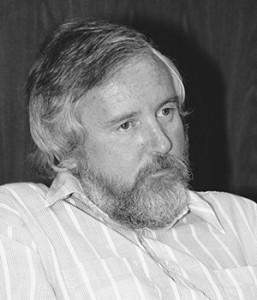In 1980, just after Jack McNally was elected to replace Dean Cofer as business manager, six IBEW 1245 members refused, on safety grounds, to clean up spilled oil containing polychlorinated biphenls (PCBs), a chemical whose production had already been banned by Congress. PG&E suspended the employees. A union grievance got the suspensions overturned.

McNally believed that political action was an essential weapon in the union’s arsenal. IBEW 1245 Archive
Under McNally, the union campaigned at both the state and federal level for regulatory action to protect members from PCBs. PG&E officials opposed creating any new standard regulating the chemical.
When California Gov. George Deukmejian eliminated the state’s occupational safety program (Cal-OSHA) in 1987, IBEW 1245 joined in a massive campaign to restore the agency. The IBEW 1245 Executive Board helped power this campaign to victory by authorizing an unprecedented $200,000 contribution. This experience reinforced McNally’s belief that political action was an essential weapon in the union’s arsenal.
During McNally’s first several terms as business manager, the staff of the California Public Utilities Commission (CPUC) tried repeatedly to force PG&E to get rid of the discount on utility bills that IBEW 1245 had negotiated for its members. McNally spearheaded a coalition of 150,000 utility workers throughout California to fight back: the Coalition of California Utility Workers.
On several occasions from 1985 through the early 1990s, CPUC staff proposed that rate-setting procedures be used to control not just the PG&E employee discount but a broad swath of compensation, including wages, pensions and benefits. These repeated attacks were successfully rebuffed by union attorney Tom Dalzell.